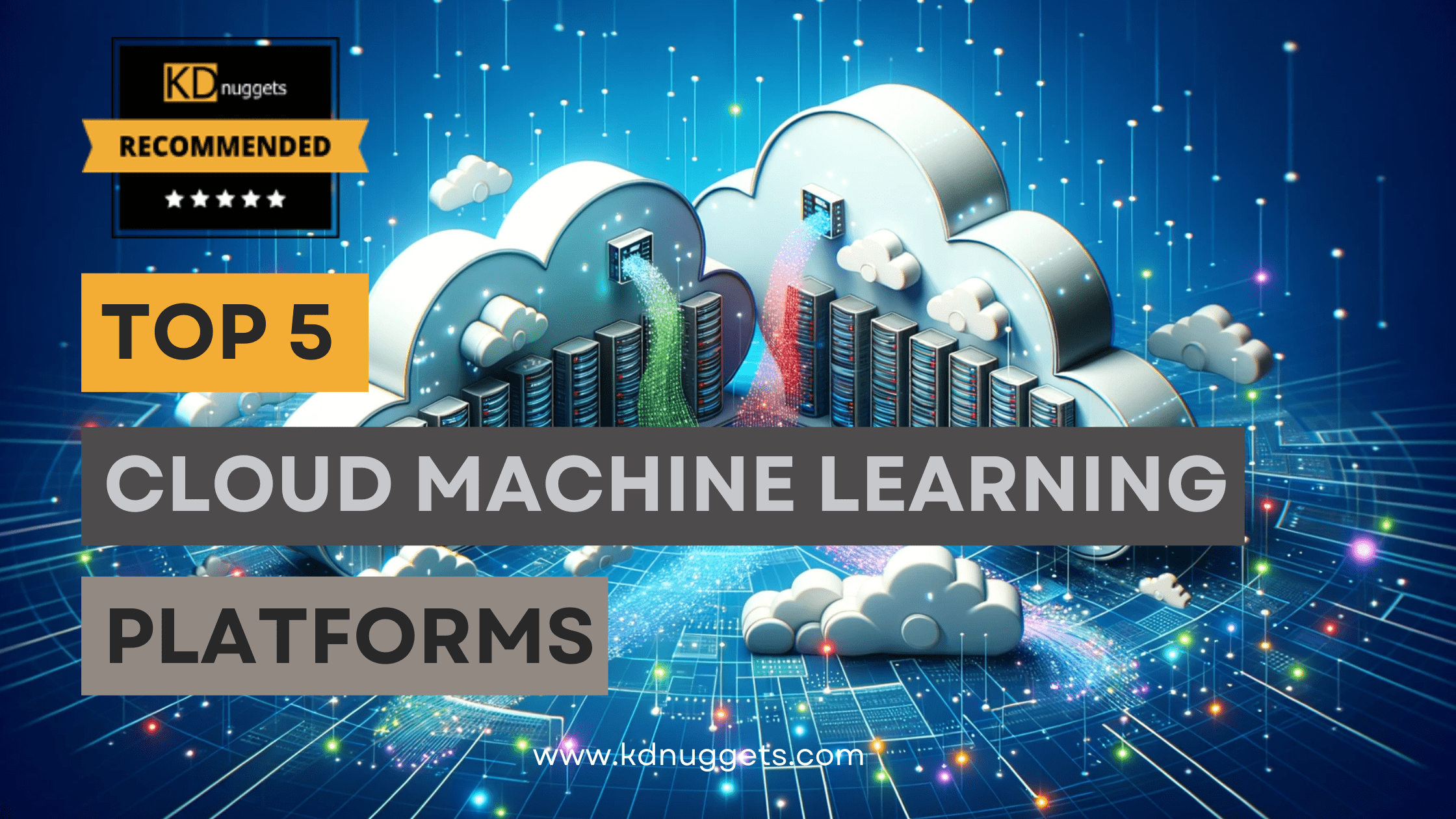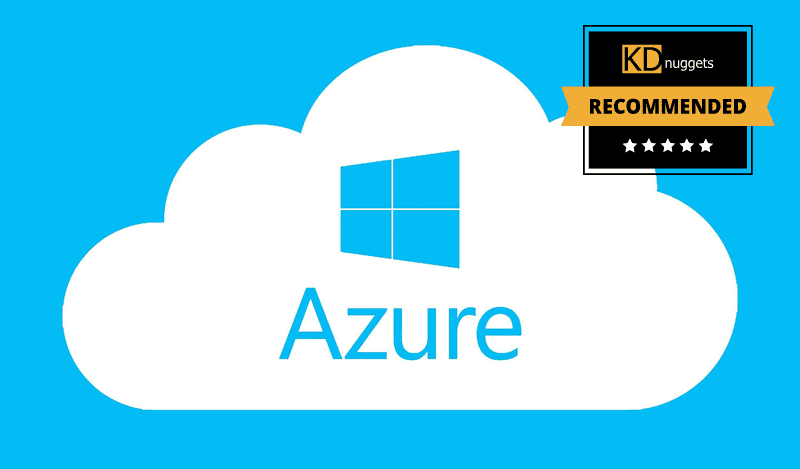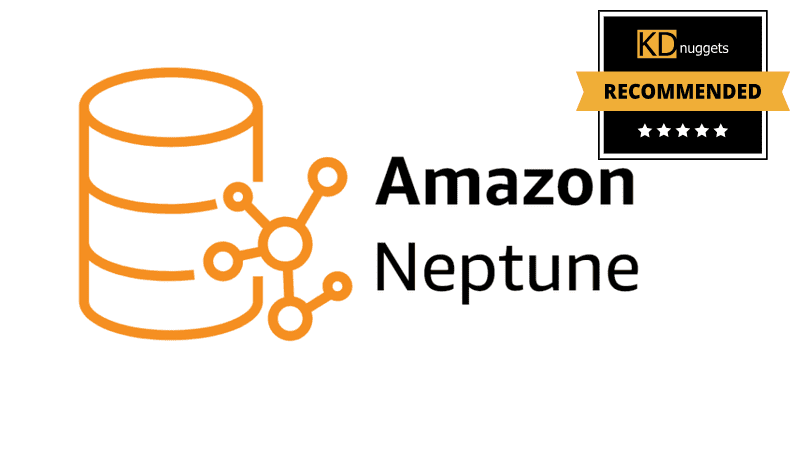The Top 5 Cloud Machine Learning Platforms & Tools
What are the top 5 cloud machine learning platforms in the market today. Our list will help provide some vital insights into which platform might best cater to your specific machine learning needs. See what KDnuggets recommends.
Harnessing the vast power and untapped potential of machine learning, also known as ML, is no longer a luxury but a necessity for businesses, researchers, and developers.
As the market is expected to be worth $209 billion by 2029, the demand for ML solutions grows, and so does the search for the most effective and scalable platforms to build and deploy them. Enter cloud-based machine learning platforms—combining the flexibility of the cloud with the computational power of ML applications.
In this article, we'll review the top 5 cloud machine learning platforms that stand out in the market today. Whether you're new to the field, a seasoned data scientist, or even an experienced enterprise leader, our list, featuring Azure ML, Lambda Labs, Google Cloud, Neptune, and BigML, will help provide some vital insights into which platform might best cater to your specific machine learning needs.
Azure ML is Microsoft’s flagship product for cloud machine learning platforms, known for its integrated environment—the Azure Machine Learning Studio. This visual interface simplifies the process of building, training, and deploying ML models without requiring deep coding knowledge. Users can easily drag and drop datasets and modules onto an interactive canvas, making it accessible even for beginners. For professionals, Azure ML supports a wide array of algorithms and frameworks, like TensorFlow, PyTorch, and Scikit-learn. Its built-in model management and deployment capabilities make the transition from development to production seamless.
- Comprehensive ML Studio for development
- Supports a wide array of algorithms and frameworks
- Built-in capabilities for model management and deployment
- Intuitive visual interface
- Vast framework support
- Robust deployment options
- Learning curve for advanced functionalities
- Cost can be a concern for smaller projects
Lambda Labs breaks the mold by directly targeting deep learning enthusiasts with its advanced GPU cloud. Recognizing the computational demands of various deep learning tasks, Lambda Labs provides infrastructure tailored for optimal performance. This translates to faster training times and real-time inferences, which are critical in modern AI tools. In addition to raw hardware power, Lambda Labs offers pre-configured software stacks, enabling developers to jump straight into training and deploying neural networks. Their high-performance workstations are an added advantage for developers needing top-tier local machines for ML workloads.
- GPU cloud built for deep learning
- Offers pre-configured software stacks
- Known for high-performance workstations
- Deep learning-focused infrastructure
- Offers pre-set software stacks
- Powerful local machine options
- More tailored for deep learning operations than traditional ML
- Not as versatile as other options for broader ML tasks
Google Cloud AI & ML is an all-encompassing platform designed to empower both budding and established data scientists. It offers a wide range of tools and services from robust data storage solutions like Google Cloud Storage to trailblazing machine learning libraries like TensorFlow. One distinct advantage is its seamless integration with cost-effective website solutions, making it particularly beneficial for startups and small businesses. Through real-time data analysis and model deployment directly from websites, Google Cloud AI simplifies the machine learning process and propels businesses toward data-driven decision-making.
- Offers a suite of tools catering to various AI needs
- AI Hub for collaboration and deployment
- Integrated with other Google Cloud services
- Wide array of tools available
- Collaborative AI Hub for devs
- Tight integration with Google services
- Pricing can be complex
- Some services have steeper learning curves
Neptune is unique in bringing advanced machine learning capabilities to graph databases. It enables a range of applications, from recommendation systems to fraud detection, by predicting relationships in graphs. The platform's strength lies in its ability to automatically recognize graph structures, optimize ML models, and enable predictions without manual feature engineering. Another plus is its seamless integration with Amazon SageMaker, allowing for a comprehensive workflow from model training to deployment. Neptune also allows for quick and efficient insights through SPARQL queries.
- ML on Graph databases
- Seamlessly integrated with Amazon SageMaker
- Predictions with SPARQL queries
- ML for graph databases
- Easy integration with SageMaker
- Intuitive predictions via SPARQL
- Niche focus on graph databases
- Requires familiarity with the AWS ecosystem
BigML provides an accessible and user-friendly cloud-based machine-learning platform suitable for both beginners and experts. It features a visual interface that simplifies tasks like data import, transformation, and model creation. One standout feature is WhizzML, a domain-specific language that automates complex ML workflows. This automation is useful for optimizing repetitive tasks and ensuring reproducibility. The platform also offers a variety of algorithms and visualization tools, making it an attractive option for diverse data analytics needs.
- User-friendly platform for ML tasks
- Wide variety of algorithms and visualization tools
- Leverages WhizzML for automation
- Intuitive and easy-to-use platform
- Integrates with WhizzML for easy automation
- Offers a wide array of algorithm support
- It can be limiting for very specialized tasks
- Certain advanced features have a learning curve
The advent of cloud machine learning platforms has undoubtedly revolutionized how businesses, researchers, and developers approach artificial intelligence.
From the intuitive design of Azure ML and BigML to the deep learning specialization of Lambda Labs—each platform offers unique strengths to cater to varied needs that exist in the field.
Choosing the right one hinges on recognizing specific project requirements, budgetary constraints, and desired scalability. So, regardless of whether you're new to the field and seeking a straightforward platform or a seasoned AI researcher looking for more advanced and specialized capabilities, the landscape of currently available solutions is quite rich and varied for you to choose the best option.
Nahla Davies is a software developer and tech writer. Before devoting her work full time to technical writing, she managed—among other intriguing things—to serve as a lead programmer at an Inc. 5,000 experiential branding organization whose clients include Samsung, Time Warner, Netflix, and Sony.






